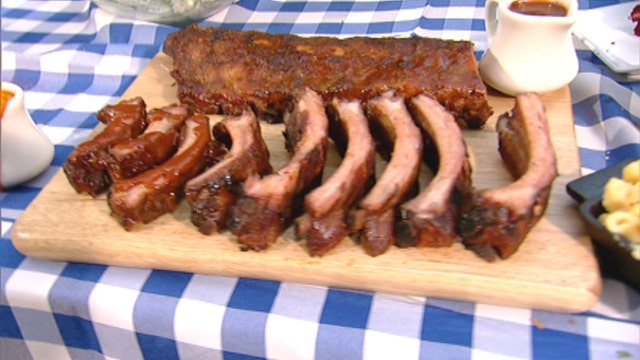More colleges, universities are adding boozy beverages to stadiums for game day
Michigan State and the University of Kentucky are two Power Five schools adding alcoholic drinks at concessions for fans
Everyone loves a good college tailgate, even Donald Trump. And while the former president flipped burgers for, and tossed around footballs with, Hawkeyes and Cyclones fans in early September at the annual Cy-Hawk Iowa-Iowa State rivalry game, many tailgaters are used to a much more rowdy time.
A growing number of colleges are stocking up on cold ones and adding on alcoholic beverages at their stadium concessions.
"The Southeastern Conference (of which we are a member) began allowing its institutions to sell alcohol in all areas of stadiums/arenas in 2019," Tony Neely, Assistant Athletic Director at the University of Kentucky, told FOX Business. "UK chose to monitor the experiences at other SEC institutions before beginning sales this year."
DONALD TRUMP TAILGATES BEFORE IOWA-IOWA STATE GAME, CROWD GOES CRAZY AS HE WALKS INTO STADIUM
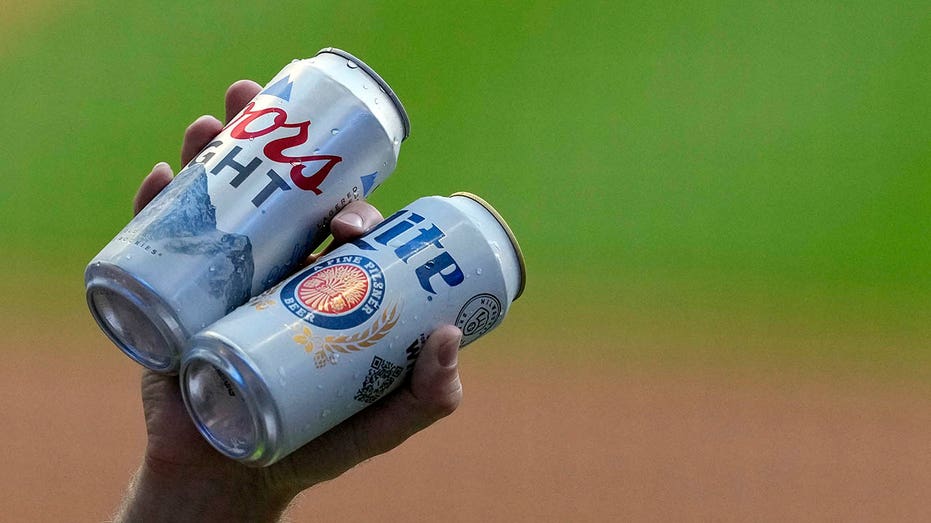
More universities are throwing themselves into the mix of Power Five schools that will sell alcohol inside stadiums. (Patrick McDermott / Getty Images)
The University of Texas at Austin, University of Minnesota and West Virginia University (WVU) have been known to sell alcohol stadium-wide for years.
"We examined data for West Virginia University using the U.S. Department of Education’s ‘Campus Safety and Security Data Analysis Cutting Tool’ from 2010 (only year alcohol sales were not permitted) to 2013," Dr. Adam E. Barry, professor and Presidential Impact Fellow at Texas A&M University, told FOX Business.
"We found a clear and strong upward trend for total number of arrests as well as the number of persons referred for disciplinary action due to alcohol-related violations occurring on-campus."
Texas A&M’s findings revealed that alcohol-related arrests were up more than 300% from 2010 to 2013 at WVU alone. As for Minnesota, during a five-year period in which the Big 10 school both did and did not sell alcohol at Huntington Bank Stadium, Texas A&M found that alcohol-related incidents during home football game weekends rose by nearly 44%.
"Obviously, the win put Ole Miss fans and students in some sort of euphoric state," Drew Davis, former quarterback at Ole Miss and current pro liaison and assistant coach at St. Thomas University in Florida, told FOX Business. "I would say 90% of them were inebriated, so there was probably no second-guessing in terms of one, rushing the field, and two, taking down the goal post."
Davis is referring to the 2014 game in which Ole Miss upset Alabama 23-17 and the Rebel fans went wild: "It was such a monumental game."
Davis has been coaching college football since 2017 and, as a former D1 athlete, has had many an opportunity to witness a booze-induced scuffle. Nevertheless, he said the "craziest" thing he's seen happen was during "Bottlegate" at the Cleveland Browns stadium in 2001. His father, Butch Davis, was coaching the Browns when fans rained beer bottles onto the field after a controversial call.
"That would be an extreme," he said of an incident like that happening at a college game.
And while Davis believes some college football crowds are culturally more rowdy, he has experienced numerous that are "quiet" and "wine and cheese" types.
MICHIGAN AG ADMITS TO DRINKING TO THE POINT OF BEING SICK DURING COLLEGE FOOTBALL TAILGATE
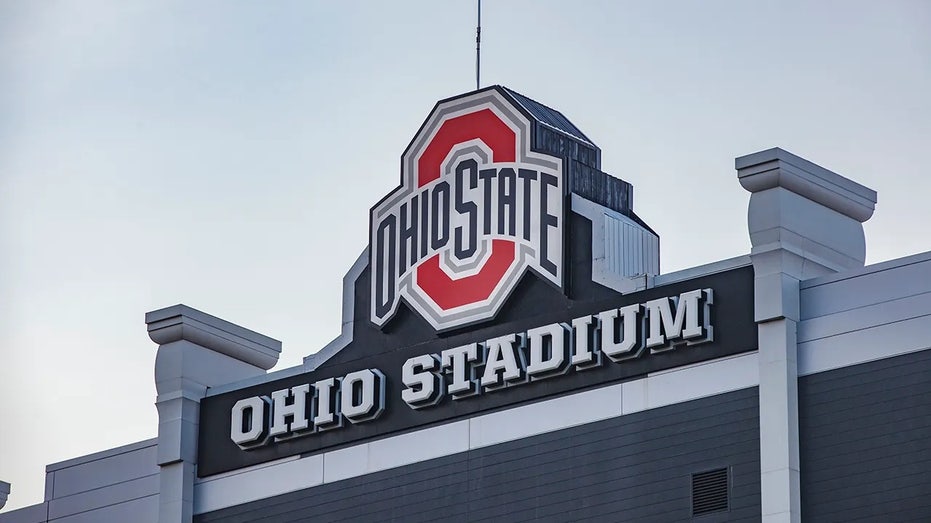
Ohio State University has been selling beer and wine beginning in 2016. (Stephen Zenner/SOPA Images/LightRocket via Getty Images)
"A huge contributor for the fan base of football is tailgating," said Johnni DiJulius, a four-time NCAA qualifying wrestler at Ohio State University, told FOX Business. DiJulius, however, has never consumed alcohol himself. He stands strong in the belief that football is a tailgaters' pastime, while wrestling is a "small, niche" sport and fans will spectate with or without incentives of alcohol.
While DiJulius reasons that wrestling bouts don't need to be booze-filled to be successful with regard to attendance, he imagines they may be more appealing to an unexpected audience if carrying malty beverages.
"They don’t just want to watch a bunch of people play fight – that’s not fun for them," DiJulius said. "I think it would definitely appeal to a larger mass."
Michigan State is one Power Five school adding the hard stuff to their shelves for the first time this year.
Earlier this summer, Michigan Gov. Gretchen Whitmer signed a bill to allow all public universities across the state to sell beer, wine and cocktails inside stadiums.
"From the Police and Public Safety standpoint, our officers and security personnel work all throughout the stadium on game days to ensure the safety of our students, faculty, staff, and visitors," said Dana Whyte, spokesperson for the Department of Police and Public Safety at Michigan State University.
She added, "It's important to note that concessions are managed by MSU's Division of Student Life and Engagement, and our department stands ready to assist in any situation."
COLLEGE PRESIDENT APOLOGIZES FOR VIRAL VIDEO OF HIM DRINKING FROM BEER BONG WHILE TAILGATING
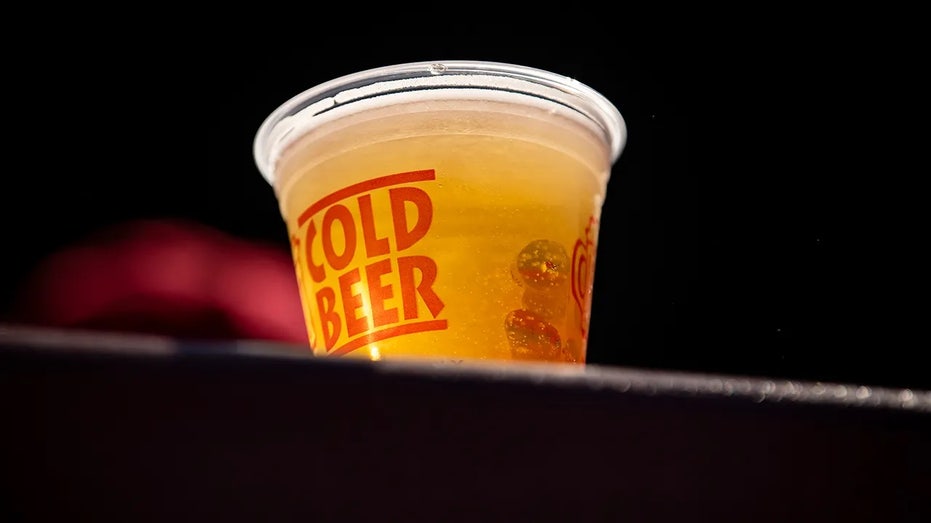
More universities than ever before are adding cold beers to their concession stand lineups. (Billie Weiss/Boston Red Sox/Getty Images)
A focal point for universities steering clear of making alcohol available onsite is the inability to truly determine which fans are receiving the drinks. Additionally, tailgaters are customarily drinking excessively in parking lots ahead of kickoff, doubling down on inebriation.
"For example, limiting the number of drinks that can be purchased at one time (typically limited to two) does not prevent the purchaser from returning to their seats and distributing the purchased drinks to underage friends, nor does it prevent the purchaser from making multiple trips – either to the same stall or other stalls selling alcohol – to get additional drinks," Barry said.
But some universities are comfortable in their precautions and routinely selling alcohol to tens of thousands of fans is gainful for universities.
A simple math problem proves just how lucrative alcohol sales are to college athletic departments.
WHAT'S THE BEST TAILGATE FOOD? GEORGIA FOOTBALL FANS SHARE THEIR FAVORITES
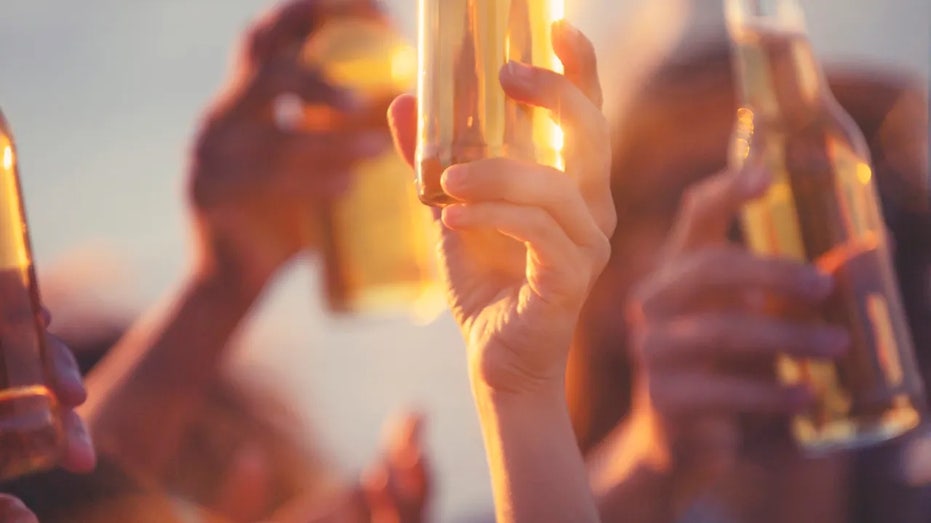
Alcohol sales at college sporting events are a way for universities to pocket plenty of cash on an annual basis. (iStock)
Let’s say 60,000 fans attend a home WVU football game. There are six home games in the 2023 Mountaineers season. Each domestic beer at Milan Puskar Stadium costs $8.50. The average coal-appreciating Mountaineers fan consumes three beers per game and, for the equation, there are 30,000 fans of legal drinking age participating in a booze-filled game day.
For an average game day and time of three hours and 22 minutes, WVU has grossed $765,000. For the season, home games pour in over $4.5 million in alcohol sales to WVU. Sure, the university isn't keeping everything, but the alternative could be empty pockets altogether.
"Given athletic departments typically lose money each year, alcohol sales represent a new, sizable income stream that otherwise would not be available," Barry said.
Though there are still Power Five schools and Notre Dame that are not allowing fans in general areas to get their hands on a cold one.
The SEC's University of Georgia is not selling alcohol to general admission ticket holders. Alcohol, including beer and wine, are only available in private areas for premium suite ticket holders at Bulldog games.
A similar token goes for Notre Dame.
"We don’t sell alcohol in general fan areas," said Aaron Horvath, adviser to the director of athletics at Notre Dame. "It is available in some premium areas and not allowed to be taken outside those areas. This has been happening since 2017."
Horvath added that alcohol, including beer and wine, is included in the cost of the suite sales and not purchasable.





















